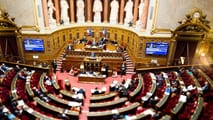Pakistani Court Rules in Favor of Christians in a Church Property Case
Good news to report out of Pakistan. Our Pakistani affiliate, Center for Law and Justice - Pakistan (CLJ-P), has successfully represented a Christian pastor and his congregation against the Muslim defendants who illegally occupied the church property. A Pakistani Civil Court in Sialkot City ruled in favor of our Christian clients over the church building, which was illegally occupied by Muslims since 2002. Civil Judge, Mr. Haider Ali Arif, decided the case after the Muslim defendants failed to present evidence of their ownership.
Established by local Christians in 1989, the United Presbyterian Church remained in use of the Christian community until 2002 when Dr. Muhammad Amin and his sons, Muhammad Nadeem, Muhammad Azeem, Muhammad Kashif, and Muhammad Abid forcibly occupied the church building with the help of a local politician, Shabbir Gujjar. The local Christians took up the matter with Christian parliamentarian, Joseph Hakim Din. Mr. Din wrote a letter to Gujjar requesting to resolve the matter. The Christians took the letter to Gujjar who tore it into pieces and handed it back to them saying, “I have seen several such politicians. Tell Din to do whatever he can.”
When Pastor Griffin Masih filed a civil lawsuit against the defendants, they warned that he would face dire consequences. “I go alone to the court. You can do whatever you want. I trust in Jesus that he is my refuge,” Pastor Griffin told them. Finding it difficult to intimidate the pastor, the defendants filed a fake criminal case against a local Christian, Arif Masih, to intimidate the local Christian community. The case was, however, decided in Arif Masih’s favor. Since then the culprits delayed the church property case so that the Christians, due to time and legal expenses, would stop pursuing the civil case. Christians in Pakistan are easy targets for such crimes because they do not have the means to retain lawyers to fight long legal battles.
In 2010, the Lahore High Court gave special orders to expedite the legal proceedings for this case. In April 2011, the Civil Court asked the Muslim defendants to produce evidence of their ownership, which they were not able to provide. The defendants also refused to accept the report of the Local Commission, which was appointed by the Court to survey the church property. The Local Commission ultimately found that the church building belonged to the Christian community and not to the Muslim occupants. Finally, the Court decided that the property belonged to the church.









